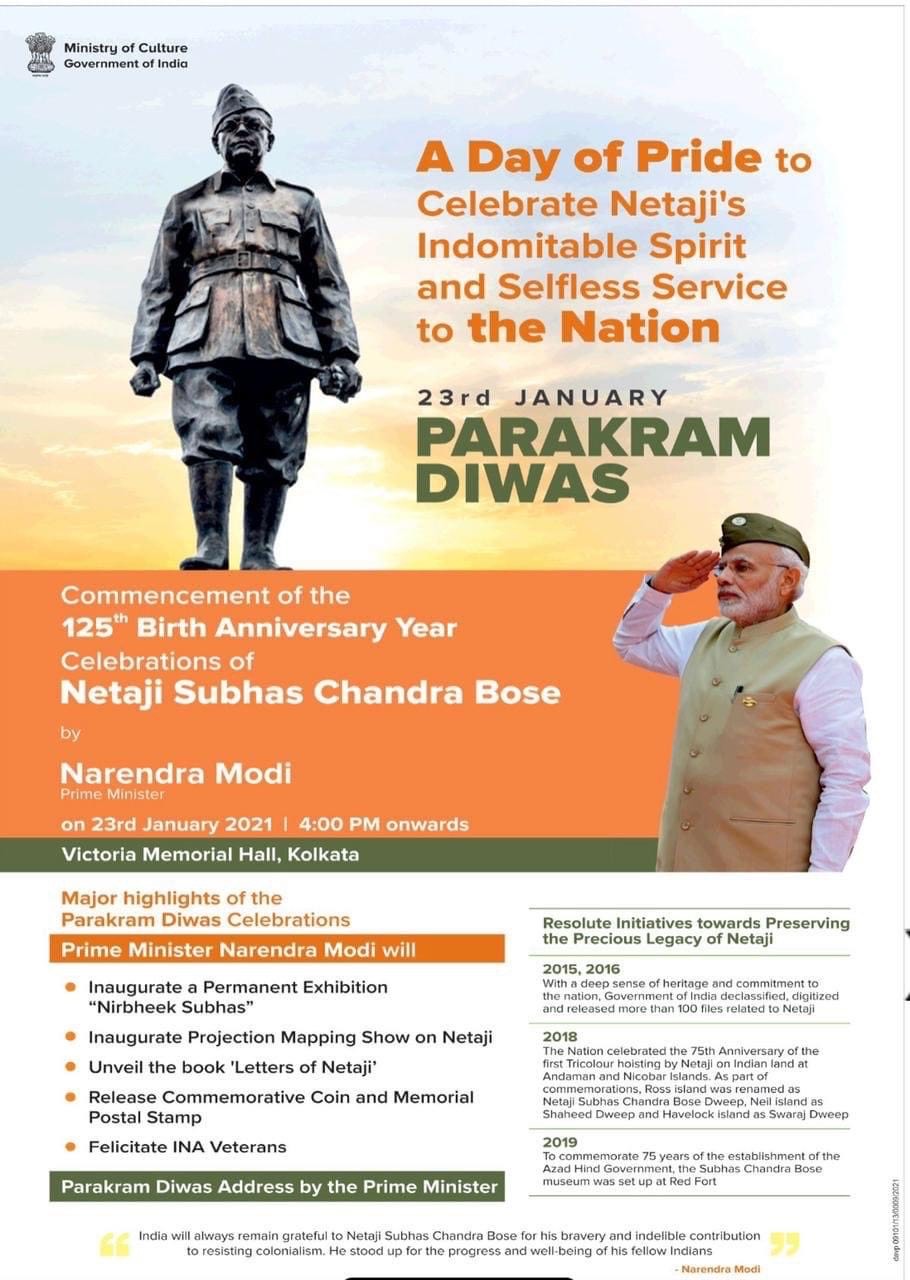Indian History
Parakram Diwas: Netaji Subhash Chandra Bose Jayanti
- 23 Jan 2021
- 3 min read
Why in News
The central government has decided to observe Subhas Chandra Bose Jayanti as 'Parakram Diwas' to be celebrated on 23rd January.
- A high-level committee headed by the Prime Minister has also been formed to plan year-round programmes to mark the anniversary of Bose.
- Recently the Government of India has also instituted Subhash Chandra Bose Aapda Prabandhan Puraskaar to recognise the excellent work done by the individuals and institutions in the field of disaster management.
Key Points
- Birth:

- Subhas Chandra Bose was born on 23rd January 1897, in Cuttack, Orissa Division, Bengal Province, to Prabhavati Dutt Bose and Janakinath Bose.
- About:
- In 1919, he had cleared Indian Civil Services (ICS) examination. Bose, however, resigned later.
- He was highly influenced by Vivekananda's teachings and considered him as his spiritual Guru.
- His political mentor was Chittaranjan Das.
- Association with Congress:
- He stood for unqualified swaraj (independence), and opposed Motilal Nehru Report which spoke for dominion status for India.
- He actively participated in the Salt Satyagraha of 1930 and vehemently opposed the suspension of Civil Disobedience Movement and signing of the Gandhi-Irwin Pact in 1931.
- In the 1930s, he was closely associated with left politics in Congress along with Jawaharlal Nehru and M.N. Roy.
- Bose won the congress presidential elections at Haripura in 1938.
- Again in 1939 at Tripuri, he won the presidential elections against Gandhi's candidate Pattabhi Sitarammayya. Due to ideological differences with Gandhi, Bose resigned and left congress. Rajendra Prasad was appointed in his place.
- He found a new party, 'the Forward Bloc'. The purpose was to consolidate the political left and major support base in his home state Bengal.
- Indian National Army:
- He reached Japanese-controlled Singapore from Germany in July 1943, issued from there his famous call, ‘Delhi Chalo’, and announced the formation of the Azad Hind Government and the Indian National Army on 21st October 1943.
- The INA was first formed under Mohan Singh and Japanese Major Iwaichi Fujiwara and comprised Indian prisoners of war of the British-Indian Army captured by Japan in the Malayan (present-day Malaysia) campaign and at Singapore.
- The INA included both, the Indian prisoners of war from Singapore and Indian civilians in South-East Asia. It's strength grew to 50,000.
- The INA fought allied forces in 1944 inside the borders of India in Imphal and in Burma.
- In November 1945, a British move to put the INA men on trial immediately sparked massive demonstration all over the country.




